Fitbit heart rate monitors are off by 20 BPM, study shows
Researchers have corroborated claims that the company's PurePulse trackers are "dangerously inaccurate"
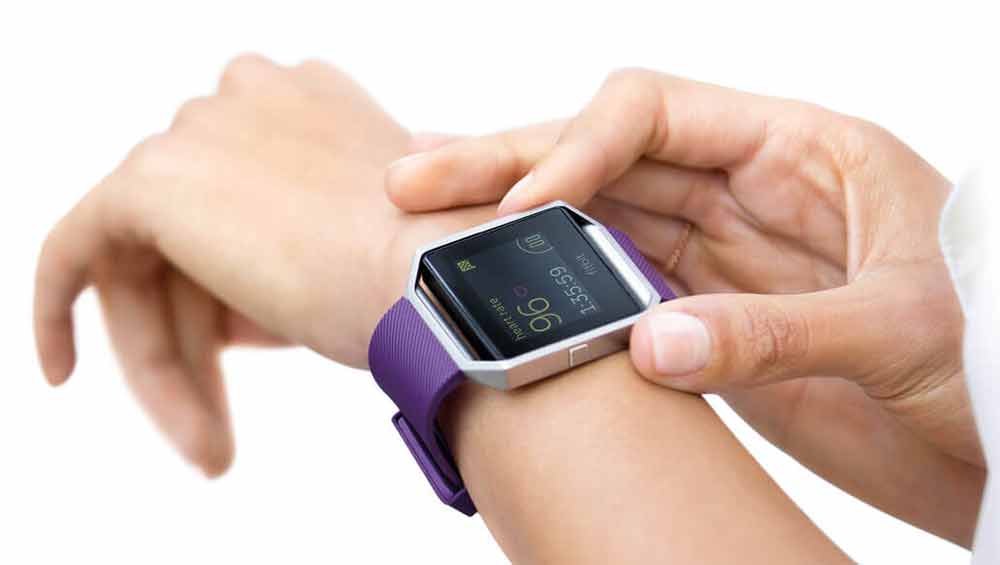

Fitbit's heart rate trackers are off by an average of almost 20 beats per minute according to a study, corroborating reports that they are "dangerously inaccurate".
The news comes as part of a class action lawsuit, being brought against Fitbit by plaintiffs who claim that the company's PurePulse heart rate monitors are off by "a very significant margin".
The study was commissioned by Lieff Cabraser, the law firm representing the plaintiffs, and showed that both the Fitbit Surge and the Fitbit Charge HR had significant problems with heart rate monitoring.
During 'moderate to high-intensity exercise', the Charge HR was found to be off by over 15 BPM, while the Surge was off by over 20 BPM. "In addition to being inaccurate," the study's authors wrote, "the PurePulse trackers are also inconsistent."
They concluded that the PurePulse trackers used by Fitbit "do not provide a valid measure of the users' heart rate and cannot be used to provide a meaningful estimate of a user's heart rate".
However, there are slight problems with the study. The sample size, for example, was comparatively small and included just 43 people, each of whom was tested only once.
Regardless, the study could prove to be trouble for the fitness wearable company, which is on the hook for an unspecified amount of damages if it loses the case.
Get the ITPro daily newsletter
Sign up today and you will receive a free copy of our Future Focus 2025 report - the leading guidance on AI, cybersecurity and other IT challenges as per 700+ senior executives
It's also disheartening news for Fitbit's customers, many of whom have been relying on the company's heart rate monitoring devices for sports and athletic training.
07/01/2016:
The suit claims that fitness trackers using the company's PurePulse technology "consistently mis-record heart rates by a very significant margin, particularly during exercise".
One of the plaintiffs reportedly noticed the difference during a workout, when her personal trainer manually recorded her heart rate as 160 BPM, compared to the Fitbit's readout of 82 BPM.
The suit is seeking an undisclosed amount of damages, based on the claim that Fitbit did not fulfil its obligation to provide an accurate heart rate monitor.
"We do not believe this case has merit," the company said. "Fitbit stands behind our heart rate technology and strongly disagrees with the statements made in the complaint and plans to vigorously defend the lawsuit".
Fitbit said that its devices "provide better overall heart rate tracking than cardio machines at the gym," but also pointed out that its trackers "are not intended to be scientific or medical devices".
In addition to devices such as the Charge HR and the Surge, the allegedly inaccurate PurePulse tracker also features in the newly-announced Fitbit Blaze.
But further bad news has been heaped on the company with the discovery of a "malicious" attack that has exposed customers personal data.
BuzzFeed News has reportedly discovered that "dozens" of Fitbit accounts at least 24 - have been compromised over the course of December.
By using compromised accounts from external sites, criminals accessed Fitbit's site in order to fraudulently request replacements.
Due to the nature of Fitbit's services, the attackers had access to a vast wealth of customer data, including GPS-based location history and sleep cycle information.
While Fitbit itself was not hacked, the ease with which hackers changed their victims' credentials has led to criticisms of its security.
Many users are calling for two-factor authentication to be implemented, to prevent this type of attack happening in future.
Fitbit's head of security, Mark Brown, said that two-step verification is something that the company is "working on actively".
A spokesperson said: "Fitbit takes our obligation to safeguard customer personal information very seriously and we are vigilant in identifying, blocking, and addressing this type of malicious nefarious activity."
"We take measures to reset the passwords of affected users and prompt those users to create new passwords."
This news comes after the launch of the company's latest product, the Fitbit Blaze, caused a drop of over 20 per cent in the company's stock.
06/01/2016: Fitbit shares stumble after CES smartwatch launch
Fitbit's shares have plummeted, following the launch of its latest product at CES 2016.
The company, which specialises in fitness-tracking wearables, unveiled a smartwatch dubbed the Fitbit Blaze at the Las Vegas technology expo.
Investors did not react favourably, however, and shares in the company dropped 18 per cent after the announcement.
It is possible that shareholders were spooked by Fitbit venturing outside its wheelhouse, as the Blaze is the first true smartwatch the company has produced.
It is also going up against the Apple Watch, which may be a daunting prospect for the firm's backers.
While the Apple Watch is the most well-known smartwatch on the market, the Blaze, which can be pre-ordered for 159.99, is actually more closely aligned with the numerous Android Wear offerings currently fighting it out.
According to Forrester analyst J.P. Gownder, one potential red flag for investors is that Fitbit is making in-roads into an almost saturated market.
"Fitbit has moved into uncharted territory - a space in which serious platform players like Apple, Google, and Samsung (among others) have invested a great deal, and a market in which the application ecosystem matters a lot."
"All of that is to say that Fitbit, with its traditional focus on health and fitness, is making the leap into a tremendously competitive and challenging market. I think investors are wondering what Fitbit will do to truly differentiate itself in an already-crowded smartwatch market."
The smartwatch scene has seen much less consumer adoption than was predicted not even the mighty Apple could make it as big a success as analysts were expecting.
Fitbit's proven pedigree in fitness tracking may serve to elevate it over its competition, however.
The company is also doubtless hoping that including more general-purpose functionality will put some distance between it and long-time rival Jawbone.
Consumer adoption will ultimately decide whether the Blaze was a wise move, but with an ongoing legal battle hanging over it, a lack of investor confidence could spell trouble for Fitbit in the long run.
Adam Shepherd has been a technology journalist since 2015, covering everything from cloud storage and security, to smartphones and servers. Over the course of his career, he’s seen the spread of 5G, the growing ubiquity of wireless devices, and the start of the connected revolution. He’s also been to more trade shows and technology conferences than he cares to count.
Adam is an avid follower of the latest hardware innovations, and he is never happier than when tinkering with complex network configurations, or exploring a new Linux distro. He was also previously a co-host on the ITPro Podcast, where he was often found ranting about his love of strange gadgets, his disdain for Windows Mobile, and everything in between.
You can find Adam tweeting about enterprise technology (or more often bad jokes) @AdamShepherUK.
-
 Cleo attack victim list grows as Hertz confirms customer data stolen
Cleo attack victim list grows as Hertz confirms customer data stolenNews Hertz has confirmed it suffered a data breach as a result of the Cleo zero-day vulnerability in late 2024, with the car rental giant warning that customer data was stolen.
By Ross Kelly
-
 Lateral moves in tech: Why leaders should support employee mobility
Lateral moves in tech: Why leaders should support employee mobilityIn-depth Encouraging staff to switch roles can have long-term benefits for skills in the tech sector
By Keri Allan
-
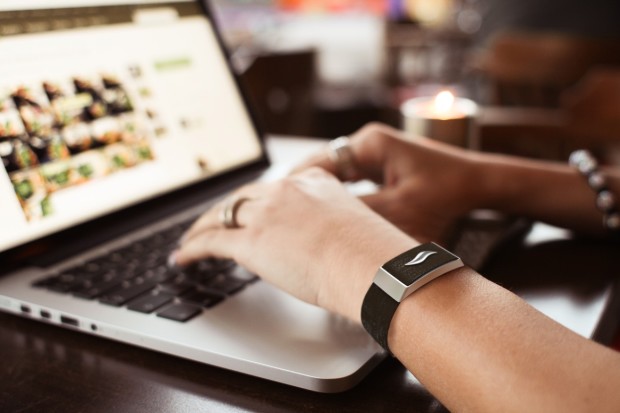 The best wearable devices for business
The best wearable devices for businessBest The best lightweight devices to help you stay productive during a busy workday
By Dale Walker
-
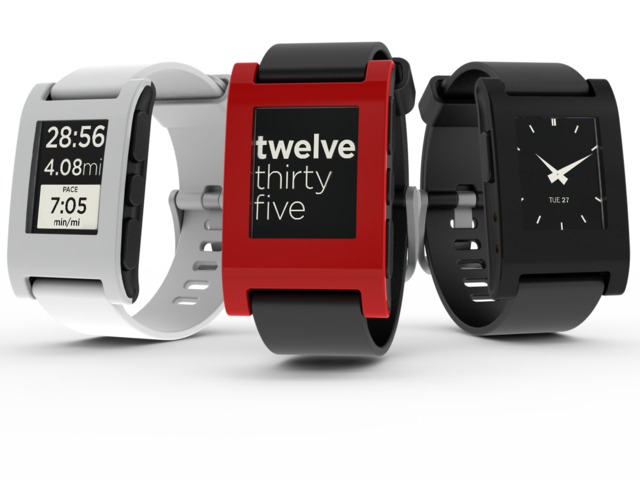 Smartwatch sales slump 52% as hype wanes
Smartwatch sales slump 52% as hype wanesNews Apple, Lenovo and Pebble all lose out in third quarter
By Dale Walker
-
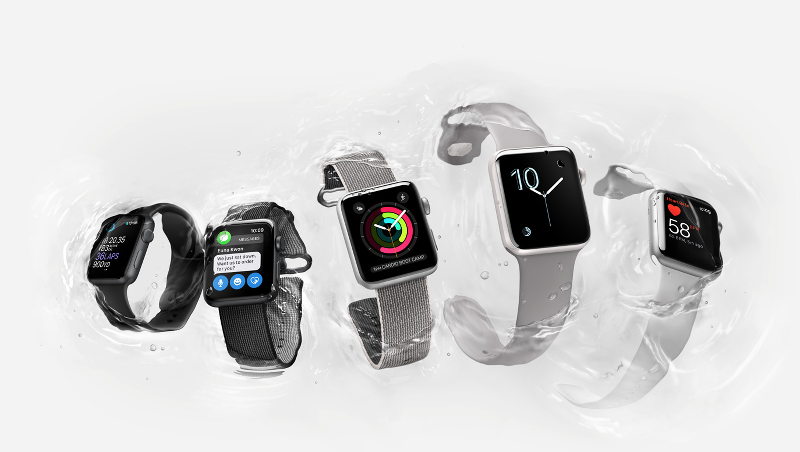 Apple Watch Series 2 review: First look
Apple Watch Series 2 review: First lookFirst look If you waited for the second generation, you haven't wasted your time
By Jane McCallion
-
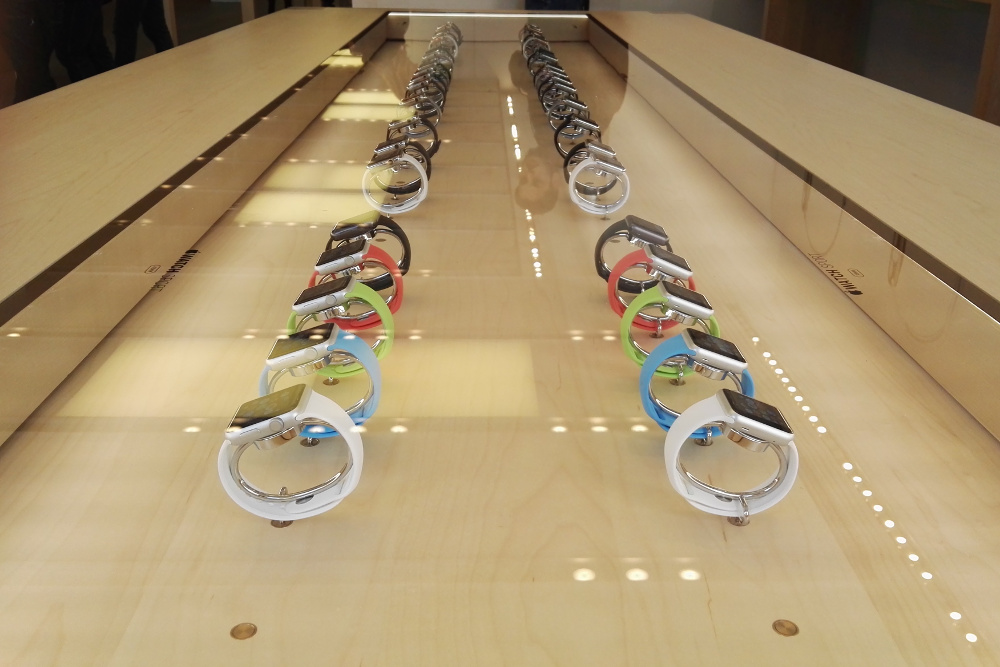 Apple watchOS 3 release date and features: watchOS 3 update available on 13 September
Apple watchOS 3 release date and features: watchOS 3 update available on 13 SeptemberRumours watchOS 3 can be downloaded from Tuesday next week
By Jane McCallion
-
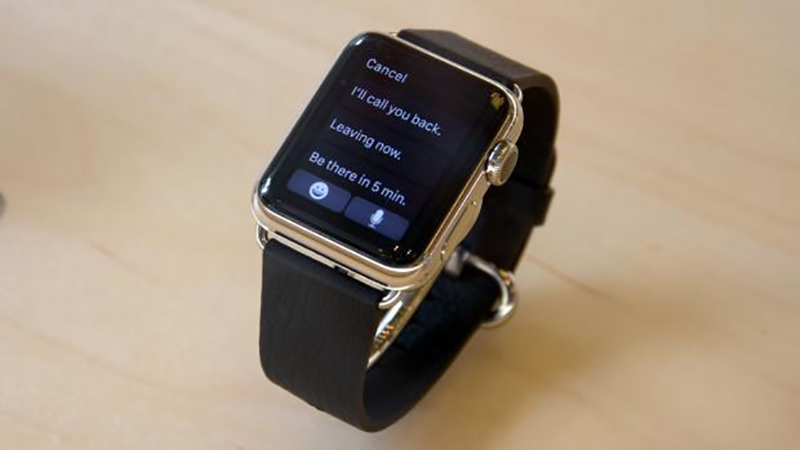 Apple Watch release date, price, features, availability and delivery date: Special edition Apple Watch bands arrive for the Olympics
Apple Watch release date, price, features, availability and delivery date: Special edition Apple Watch bands arrive for the OlympicsRumours But will only be available in Brazil
By Maggie Holland
-
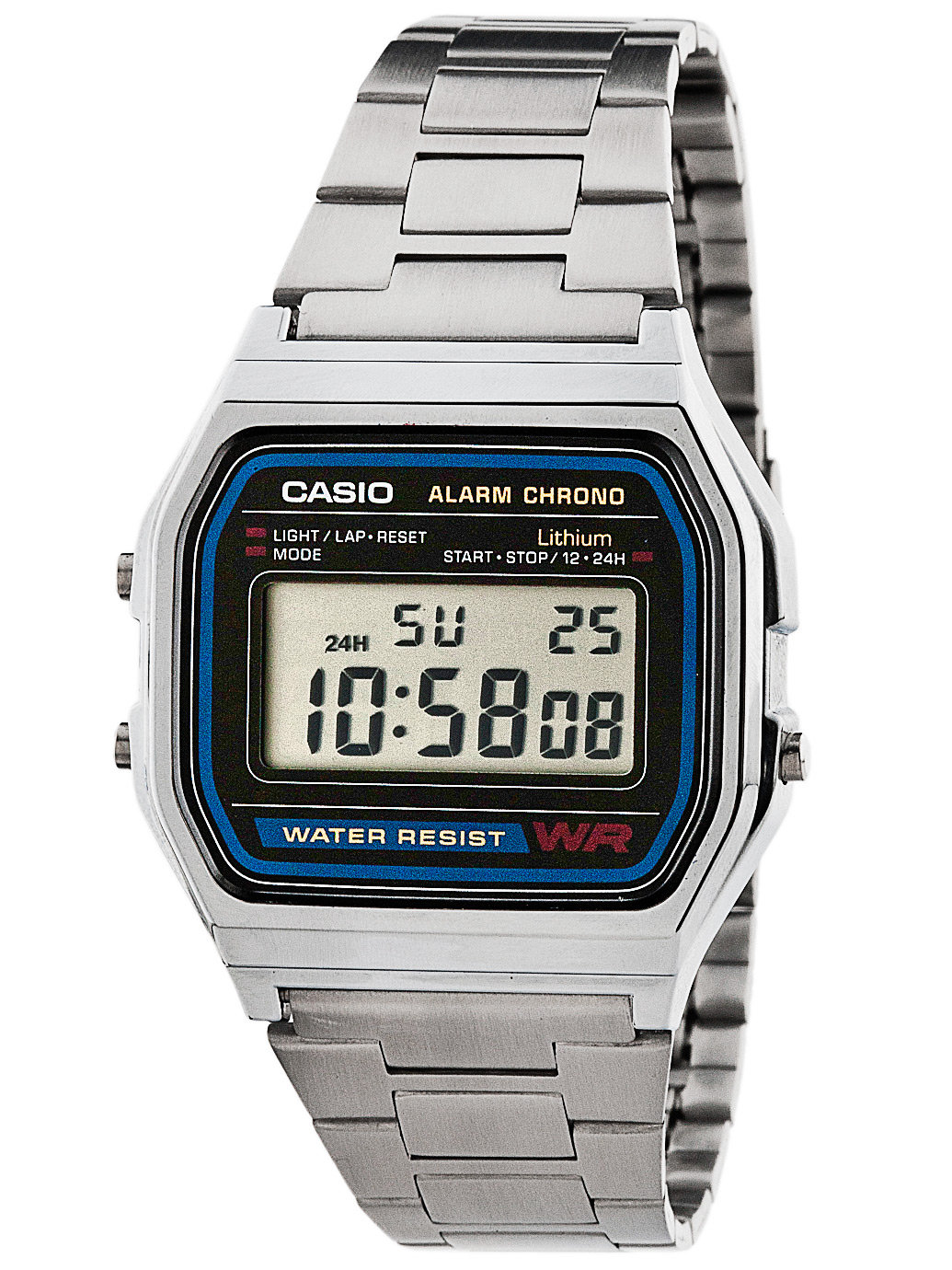 Casio will release a smartwatch in 2016
Casio will release a smartwatch in 2016News The watchmaker has revealed its own device will launch in the US and Japan early next year
By Caroline Preece
-
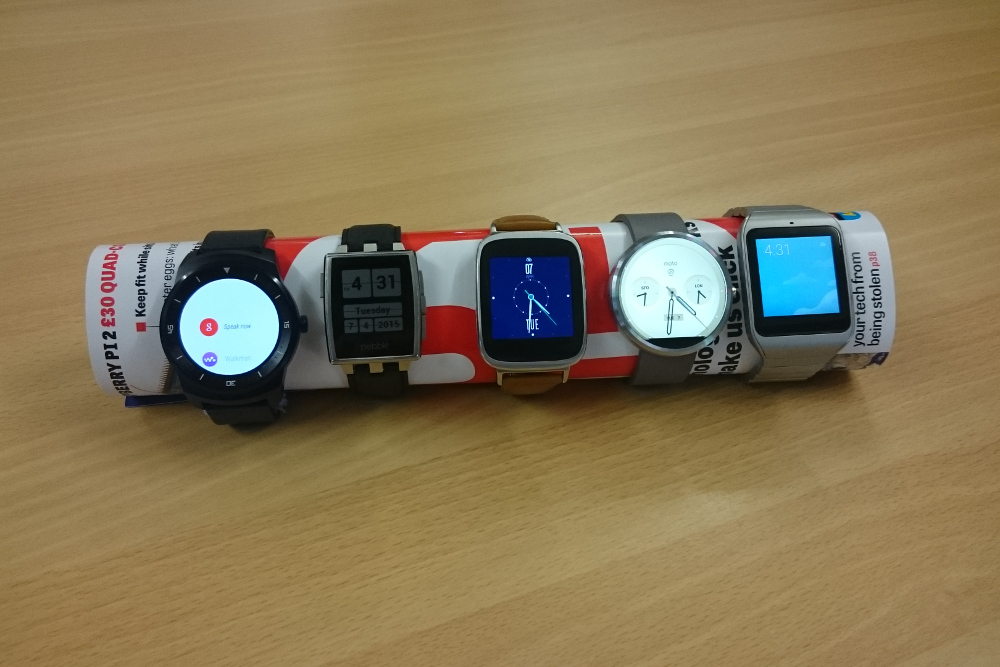 Enterprise smartwatch roundup - the top 5 business wearables
Enterprise smartwatch roundup - the top 5 business wearablesReviews We test the top business smartwatches that you can buy today - that AREN'T the Apple Watch
By Adam Shepherd
-
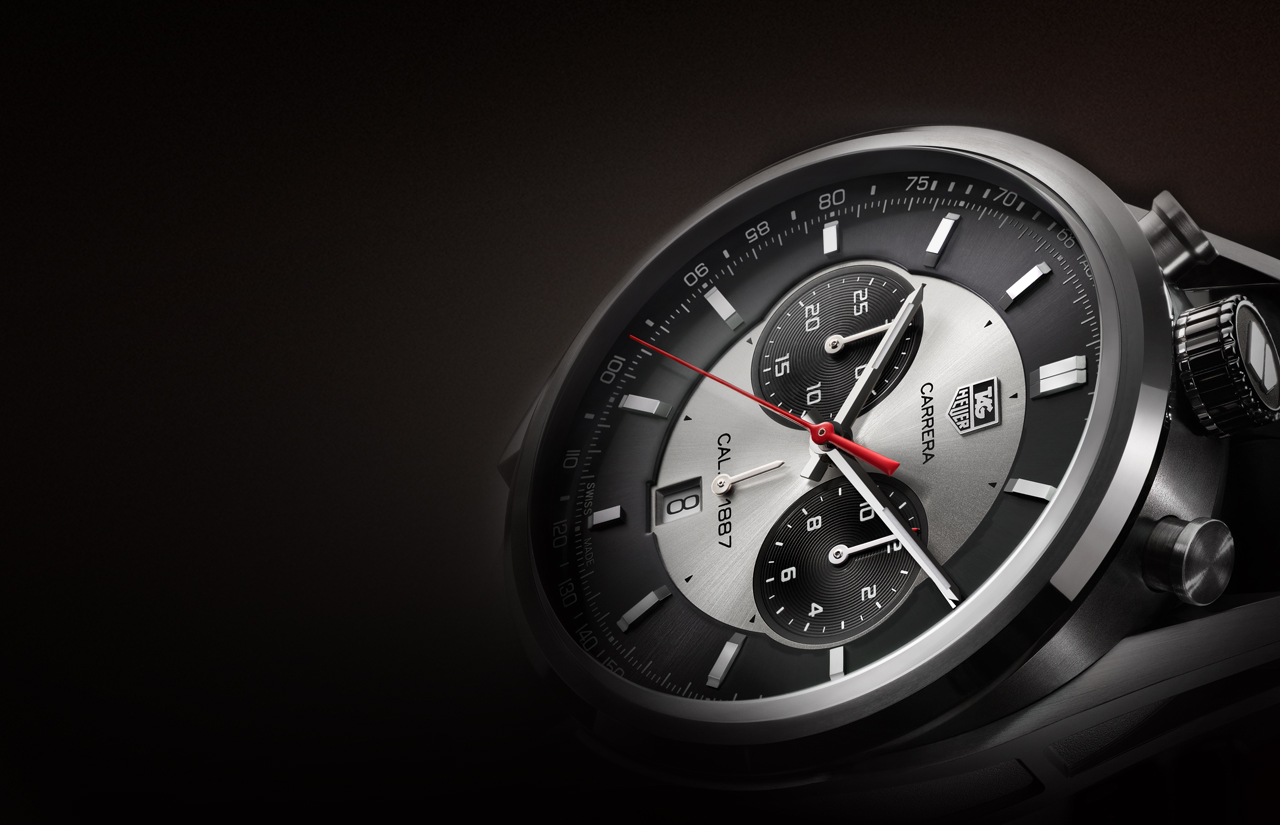 Tag Heuer unveils luxury Android smartwatch
Tag Heuer unveils luxury Android smartwatchNews Teams up with Google and Intel on Android wearable to rival Apple Watch
By Rene Millman